
OR
A place where education is possible only in winter
Published On: February 4, 2018 03:48 AM NPT By: YUBARAJ BIBASH
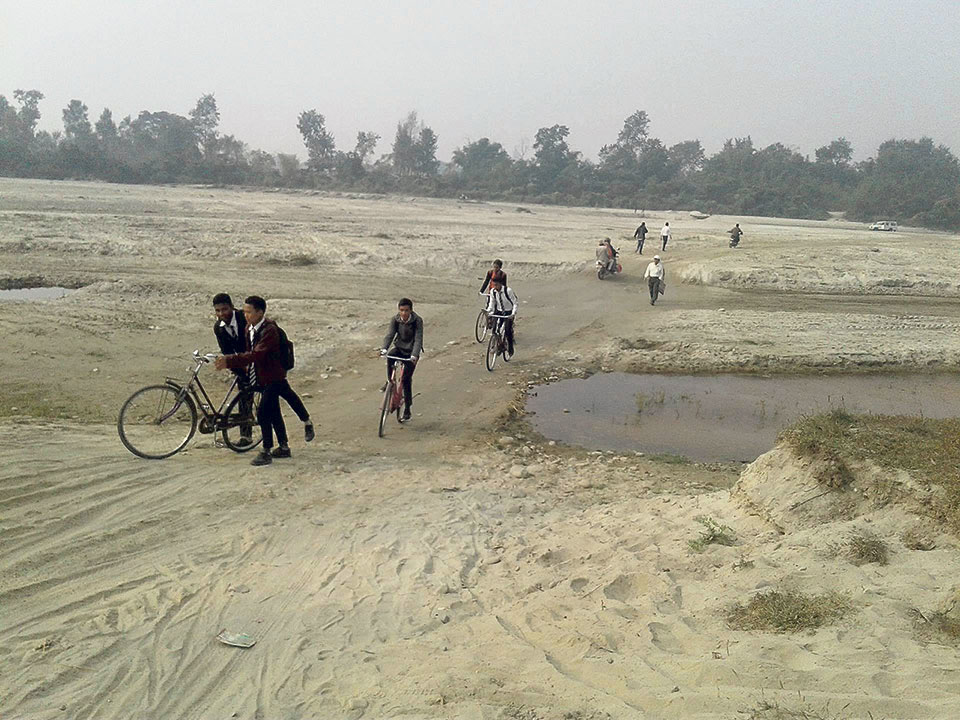
Students cross rivers during dry season to reach another district to attend school
JHAPA, Feb 3: Anil Jogi is an eighth grader. He goes to school only during winter. It's not because he dislikes school but because he cannot manage to attend classes except in the dry season.
“The way to school is difficult. We cannot get through the route any other time except winter. We cannot cross the rivers,” he said.
Jogi is one of the scores of students from Simle village of Jhapa who cannot imagine attending school except in winter. Children from around 250 households share the same fate. The village is surrounded by rivers at three sides, depriving the young ones from safe journey to school.
“The rivers swell during rainy days. They remain quite big even during other time. Only in winter does the water level lowers down a little and we can go to school,” Jogi said.
Jogi's village is in Jhapa but his school is in the adjoining district Morang. “We don't have any school nearby our settlement. We have to go far away to study,” he says. He added that the difficulty in reaching school has quite affected their education.
Sunil Wagle, an 11th grader, is no less disappointed. According to Wagle, the government has neglected the people of his village. It is not just the issue of education but the locals are deprived of health and other facilities, too, he said.
“In our village, there is no facility. We don't have health posts, medicines and doctors nearby.
During emergency, people get no help,” he lamented. “We are somewhat educated and we can think rationally. Others in our village even do not know anything about their rights,” Wagle added.
Wagle reminisces the days when he had to walk miles to reach school as a kid. He recalls falling ill several times due to the fear of rivers and the long distance. “Primary education is available in the same district but higher level students have to go as far as Aitabare of Chulachuli, Ilam to attend classes,” he said. “We have to cross three rivers to reach Aitabare,” he said.
As a small kid, he always felt quite nervous while crossing river to go to school. Sometimes, children risk their life while getting through the rivers, he remarked.
Though Jhapa is considered rather a developed district, students like Jogi and Wagle rate it as the worst place in terms of facilities. They say that there is a need to overhaul the plans and policies as well as government system so that education can be easily accessible to everyone.
Hurdle is Ratuwa River
According to locals of Simle village, Ratuwa River is the biggest hurdle for their 'voyage' to school. In lack of bridge, they cannot get beyond their village as and when they want, they lament. Jogi said that many children in his village stop going to school after completing the primary level. “They don't dare continuing their studies. Neither do the parents force them continue studies,” he said.
According to Hari Prasad Chamlagain, principal of Shaid Ratna Primary School, Simle, children from some particular settlements are indeed in great difficulty. They are poor and marginalized as well, he said.
“This school is for all. But we have not been able to ensure education to all,” he said.
“There are other rivers as well, but Ratuwa River is the biggest one. We have been isolated due to this. We would have better life if there had been a bridge or some other solution,” he added.
Chamlagain also noted that students in his school find it difficult to compete elsewhere. Due to the medium of Nepali language used in the school, they cannot compete when they join some other school at higher grade. “We do not have resources to change our medium of instruction,” he said.
Meanwhile, an adolescent Samil Limbu from Damak stated that 'everything is a matter of economic status'. Not all the people from Simle are so poor, he said. “Those who are rich manage to send their children to boarding schools. It is only the poor people whose education is affected,” he said.
You May Like This
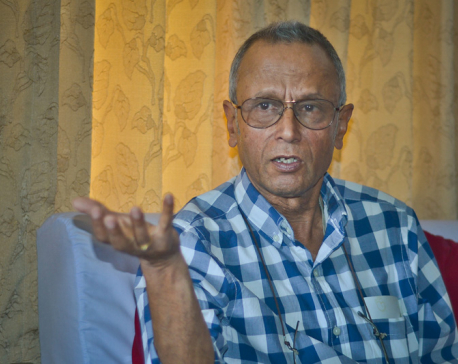
Karki is innocent until she is indicted and parliament approves the indictment
The impeachment motion against Chief Justice Sushila Karki on Sunday shocked the country. This was because Chief Justice Karki was... Read More...
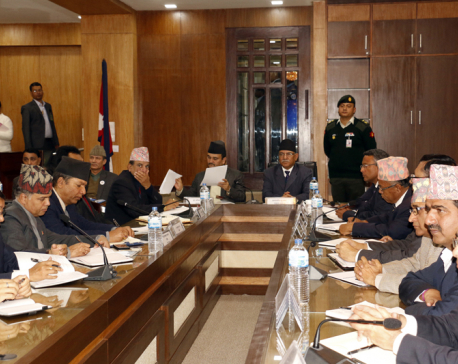
Democracy consolidates only when RTI is enforced: PM Dahal
KATHMANDU, Nov 21: Prime Minister Pushpa Kamal Dahal has said that good-governance and development could be achieved and democracy consolidated... Read More...

Infographics: Where women’s religious attire is restricted
Countries where some level of government restricts women from wearing religious attire (2013)* ... Read More...




Just In
- Nepalgunj ICP handed over to Nepal, to come into operation from May 8
- Nepal to gift two elephants to Qatar during Emir's state visit
- NUP Chair Shrestha: Resham Chaudhary, convicted in Tikapur murder case, ineligible for party membership
- Dr Ram Kantha Makaju Shrestha: A visionary leader transforming healthcare in Nepal
- Let us present practical projects, not 'wish list': PM Dahal
- President Paudel requests Emir of Qatar to help secure release of Bipin Joshi held hostage by Hamas
- Emir of Qatar and President Paudel hold discussions at Sheetal Niwas
- Devi Khadka: The champion of sexual violence victims



_20240423174443.jpg)






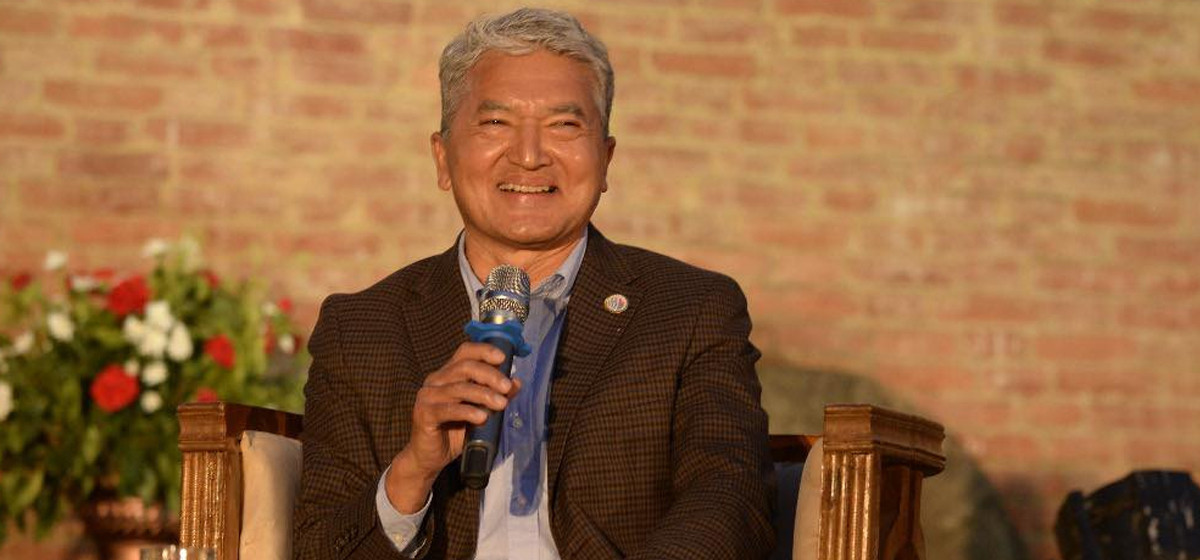
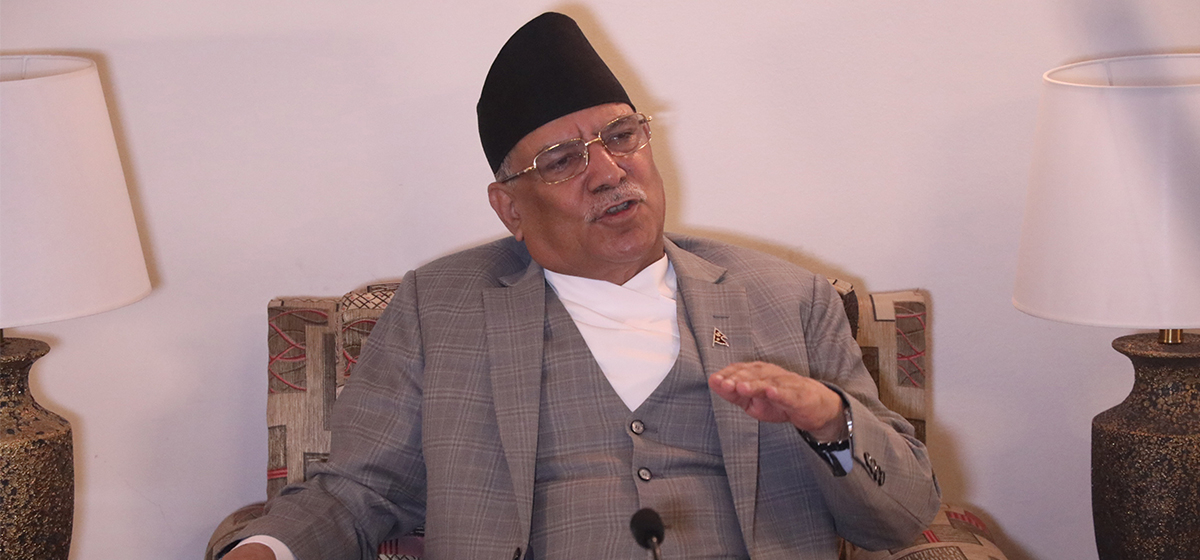

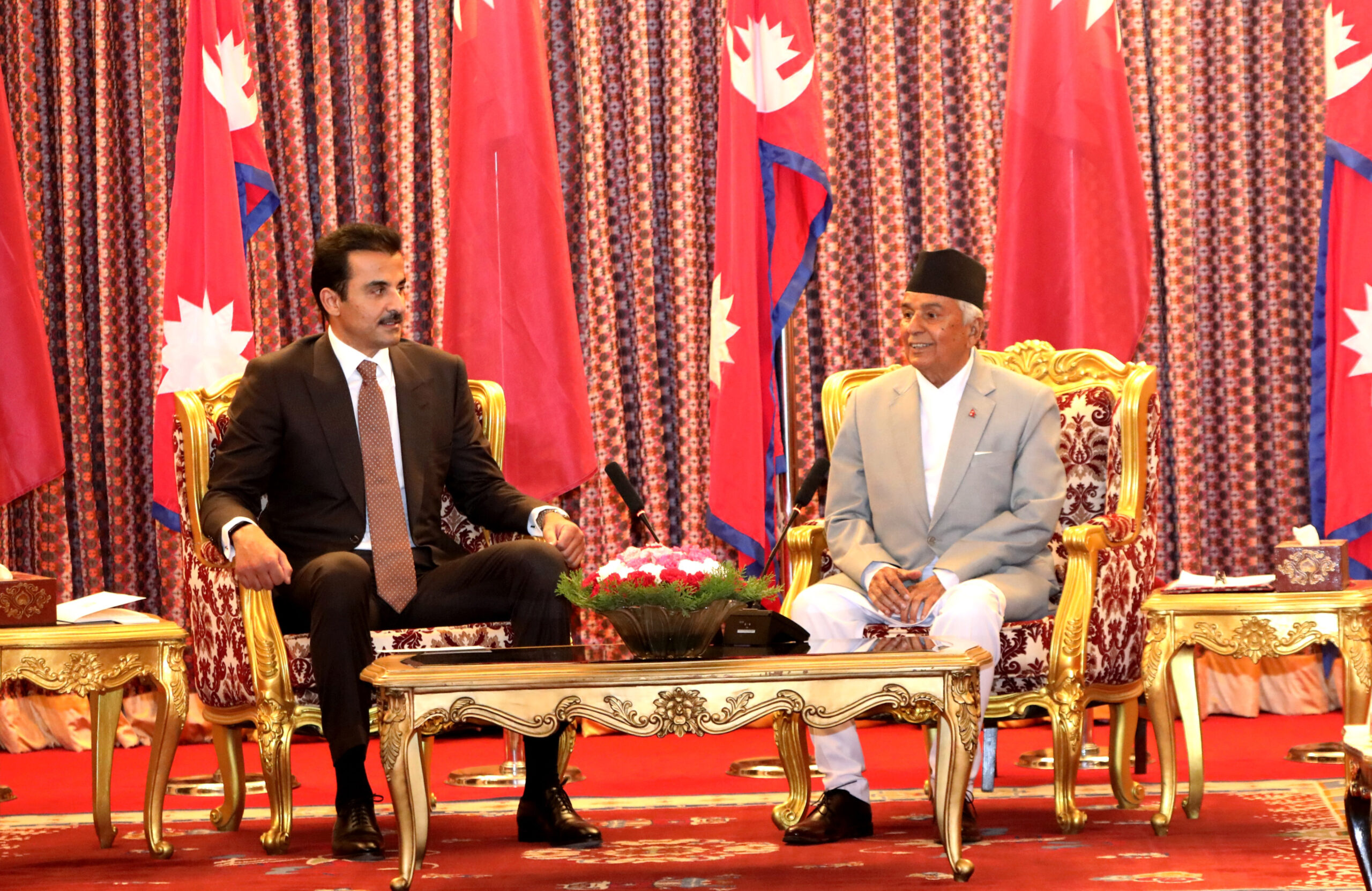
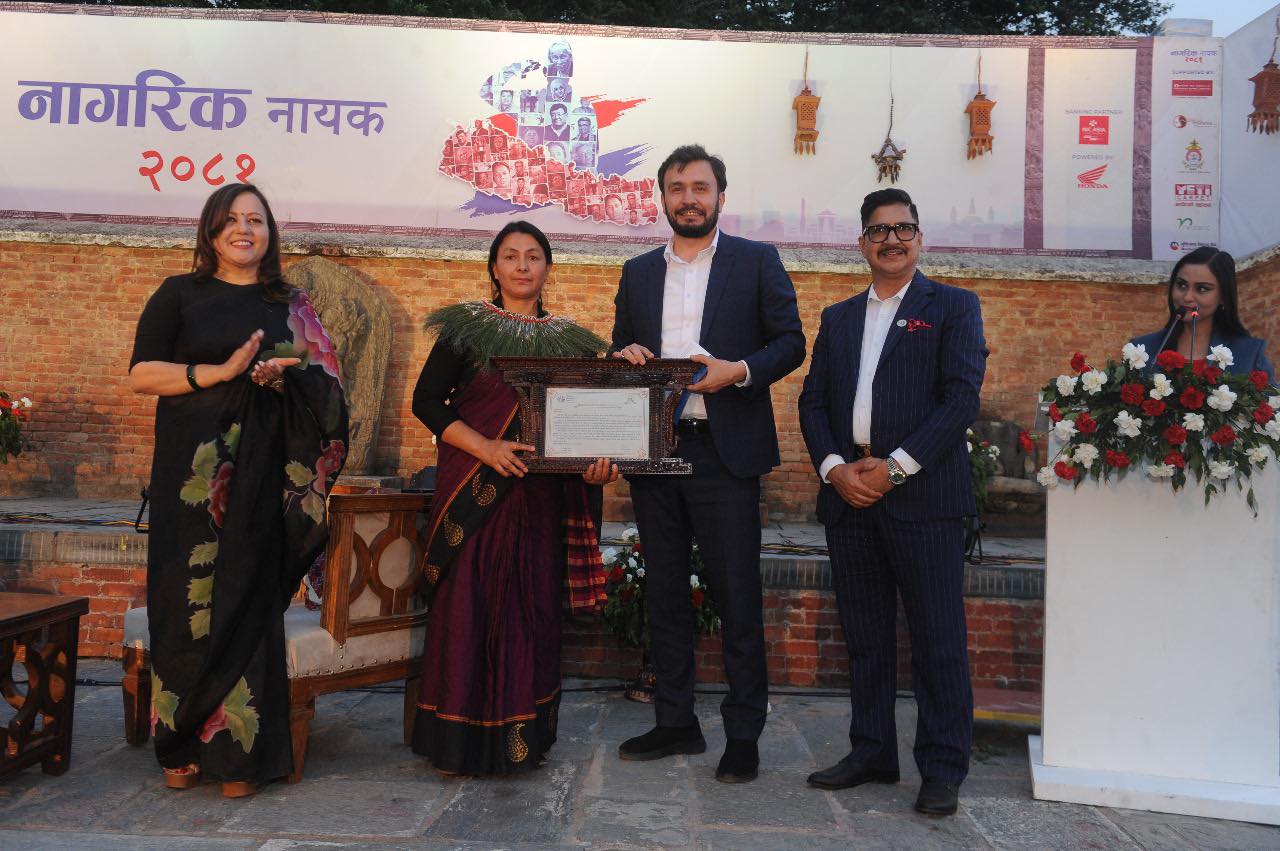
Leave A Comment